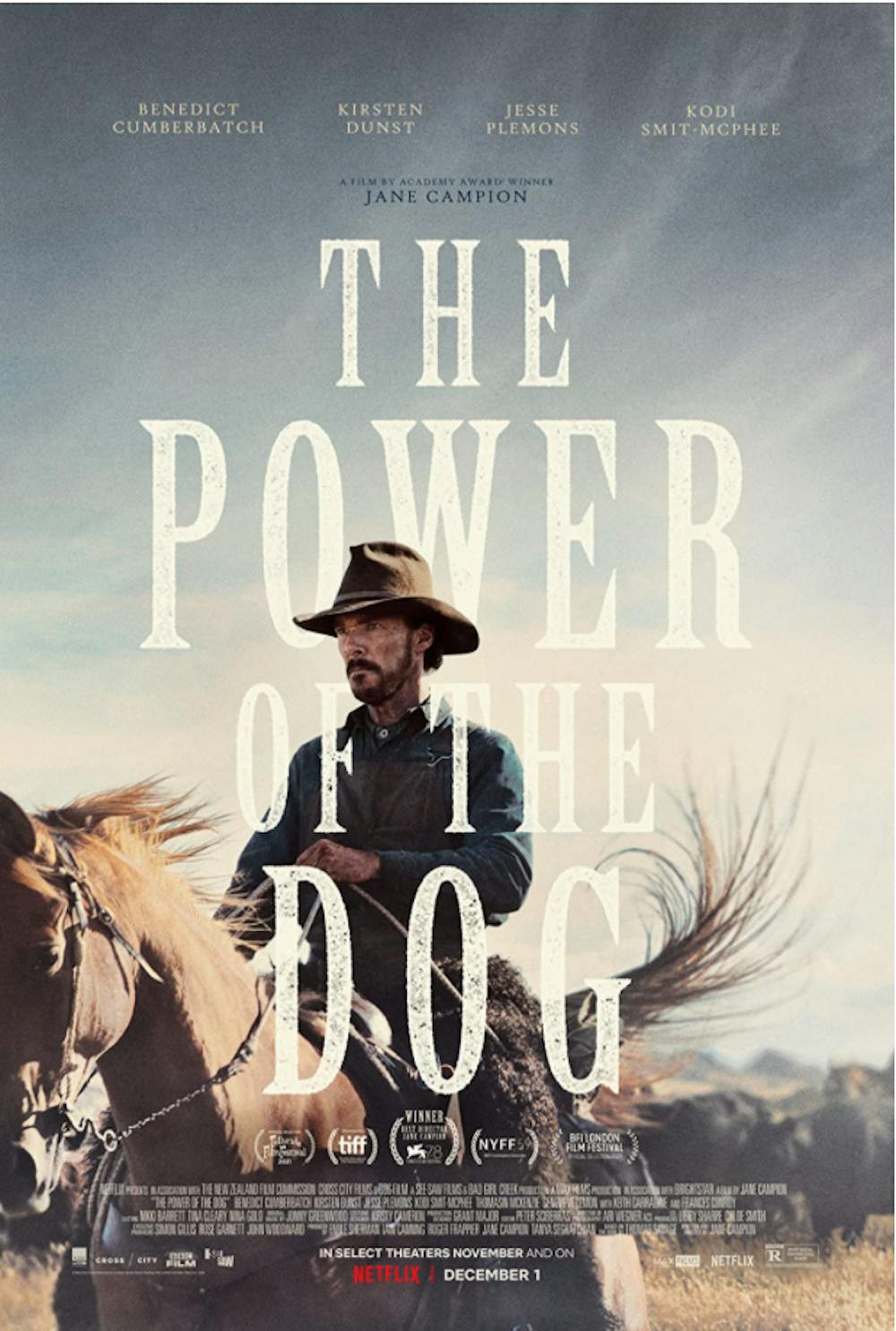By Nick DelVescovo
Film Critic
“The Power of the Dog,” which was released on Netflix on Nov. 17, had one of the most unique plots of anything I’ve seen last year. With Oscar season coming up and this film being one of the top contenders for best picture, I decided to give it a watch. The film stars Benedict Cumberbatch, Kirsten Dunst, Jesse Plemons and Kodi Smit-McPhee. It was also beautifully directed by Jane Campion.
The film follows Cumberbatch’s character, Phil Burbank, an overly-narcissistic and belittling rancher, and his brother, George. While Phil and George’s relationship already seems skewed from the start, it further derails when Phil doesn’t take kindly to George’s new wife Rose and her son, Peter. We follow the complexity of the intertwined relationships as new untold drama starts to arise. There is a lot more that this film covers, but not only would a summary not do it justice, it would also give away some key plot points that would be better experienced when watching the movie.
My expectations for this film were definitely subverted, as I went in expecting your average western with guns, action and a hero that saves the day. I was disappointed in the greatest way possible. “The Power of the Dog” is a powerful psychological drama with complex characters, and surprising themes of toxic masculinity, homophobia and predatory behaviors. These themes are rare for a drama, let alone a western. Paired with absolutely stunning cinematography from Ari Wegner and a stellar soundtrack by Johnny Greenwood, this movie deserves the hype it receives.
“The Power of the Dog” is a perfect example of showing without telling. Many of the nuanced details of the plot make this a compelling psychological drama. There is a lot for the audience to pick up on, and even a lot to miss if you aren’t paying attention. I really loved that aspect of the film. A second viewing seems necessary, and I can already tell this is a movie that I will watch later on and notice details about characters that wouldn’t have made sense until I understood how the movie concludes.
One of the best aspects to this movie is the fact that there is nothing I can really compare it to. That doesn’t mean it comes without flaws, which I will get into later, but it truly is unique. Aspects of this movie are slightly inferred where the viewer has to make their own conclusions. This the perfect movie to have a long conversation after, as it leaves a lot up to interpretation but at the same time has a solid narrative.
One of my only issues with “The Power of the Dog” is that there were points of confusion for me, and I could see how some audience members could be confused at times as well. Like I stated, the film puts the job of figuring things out on the viewer, and if some aspects don’t stick or some viewers don’t catch on right away, it could get confusing. The conclusion of this movie does wrap everything up nicely and leaves a great amount of questions while also tieing up as many loose ends as necessary which I appreciated.
While “The Power of the Dog” has a lot of nuance to it, I highly recommend it to anyone interested in film. The craft that went into it on all fronts is something to admire, and the complicated story of deception, family and protection with themes of toxic masculinity, homophobia and predation add up to an Oscar-worthy film that will at the least leave you thinking.
Score: 4/5







